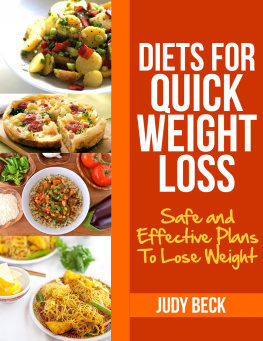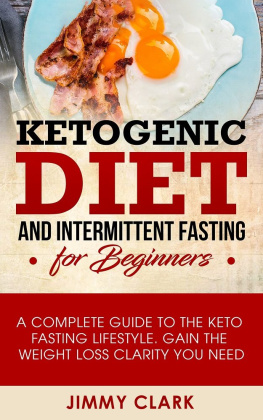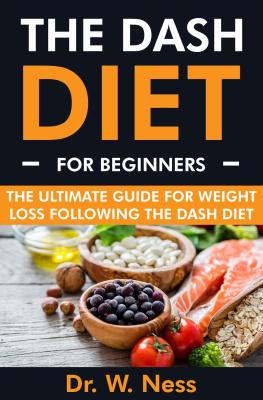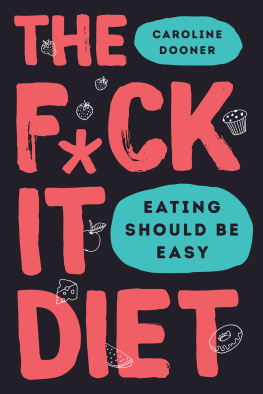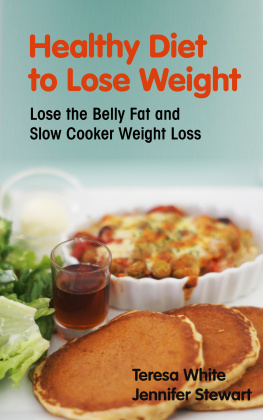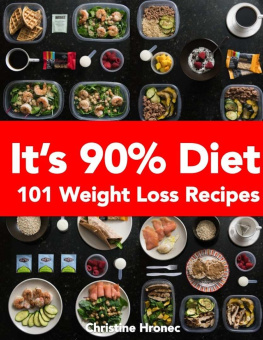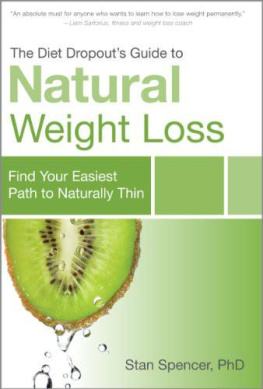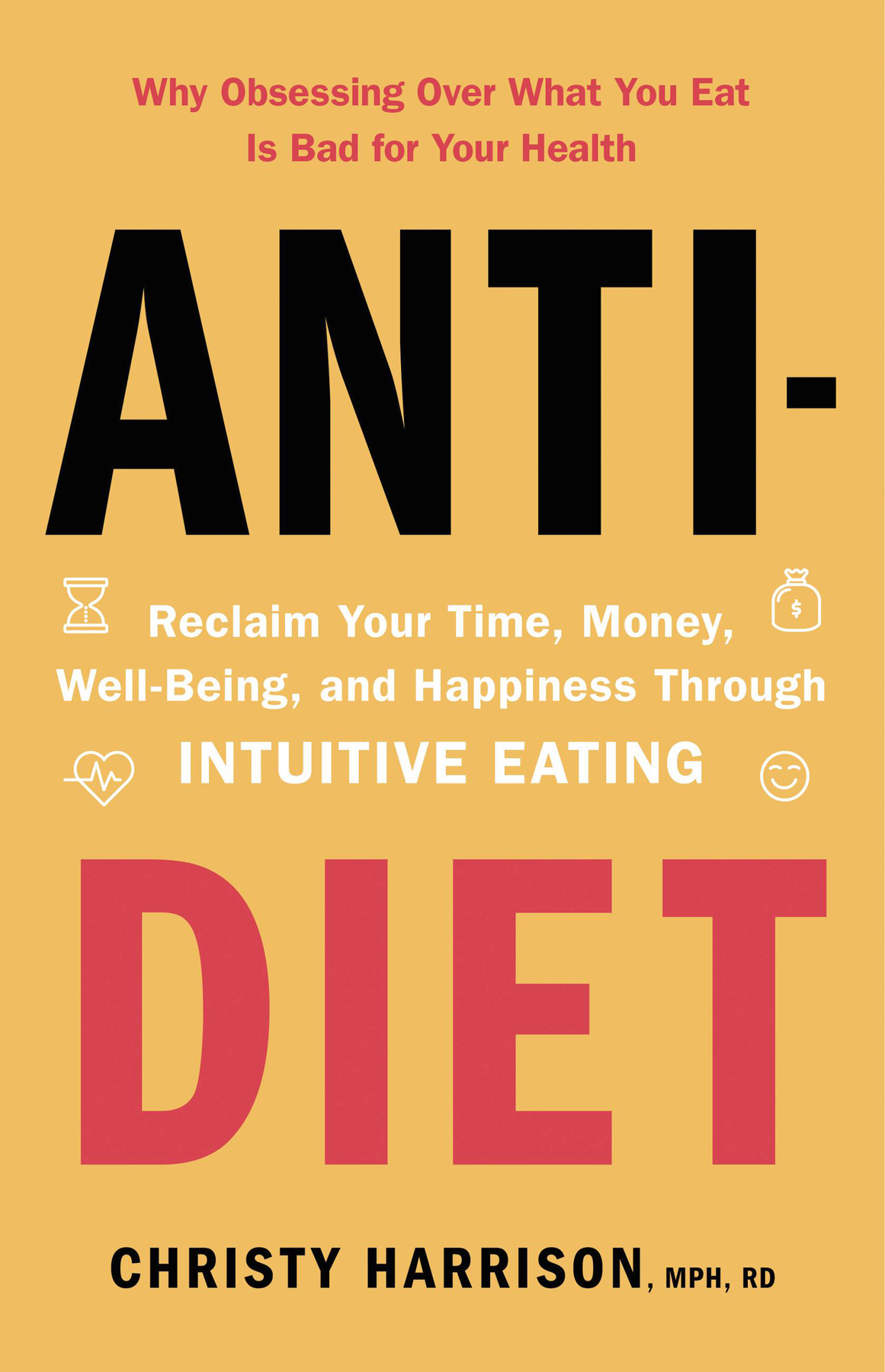This book is intended to supplement, not replace, the advice of a trained health professional. If you know or suspect that you have a health problem, you should consult a health professional. The author and publisher specifically disclaim any liability, loss, or risk, personal or otherwise, that is incurred as a consequence, directly or indirectly, of the use and application of any of the contents of this book.
Copyright 2019 by Christy Harrison
Cover design by Lucy Kim
Author photograph by Abbey Moore
Cover copyright 2019 by Hachette Book Group, Inc.
Hachette Book Group supports the right to free expression and the value of copyright. The purpose of copyright is to encourage writers and artists to produce the creative works that enrich our culture.
The scanning, uploading, and distribution of this book without permission is a theft of the authors intellectual property. If you would like permission to use material from the book (other than for review purposes), please contact permissions@hbgusa.com. Thank you for your support of the authors rights.
Little, Brown Spark
Hachette Book Group
1290 Avenue of the Americas, New York, NY 10104
littlebrownspark.com
Twitter.com/lbsparkbooks
Instagram.com/littlebrownspark
Facebook.com/littlebrownspark
First ebook edition: December 2019
Little, Brown Spark is an imprint of Little, Brown and Company, a division of Hachette Book Group, Inc. The Little, Brown Spark name and logo are trademarks of Hachette Book Group, Inc.
The publisher is not responsible for websites (or their content) that are not owned by the publisher.
The Hachette Speakers Bureau provides a wide range of authors for speaking events. To find out more, go to hachettespeakersbureau.com or call (866) 376-6591.
ISBN 978-0-316-42036-5
E3-20191115-JV-NF-ORI
For Mom and Dad, who gave me life, language, and a penchant for challenging authority
Like the vast majority of American women, Ive had a rocky relationship with food at various points in my life. I somehow made it through childhood and adolescence without any eating issues, despite having had the usual body-image insecurities that come with growing up female (and increasingly growing up any gender) in our society. I was raised in the San Francisco Bay Area in the 1980s and 90s, and my parents and most of their friends were middle-class recovering hippies who eschewed many of the 50s-era social conventions and gender roles theyd been brought up with. Yet pretty much all the adult women in my life were dieting or watching what they ate, just like their mothers before them. As the girls my age began to hit puberty, they started dieting, too. But not me. Although I was insecure about my changing body, I wasnt what society considered fat, or even chubby. I never had a parent or doctor tell me to lose weight, and wasnt bullied for my size or shape. Those were unearned privileges I didnt even know I had until much laterprivileges that unfortunately werent afforded to some of my friends. A few fell prey to eating disorders and went to treatment, while others muddled along on their own.
In high school I started hanging out with the alternative kids, the ones who listened to punk rock and ska on seven-inch records and had lots of piercings. I got some piercings and a record player, too, and emblazoned the cover with punk stickersincluding one that said, You CAN be too rich and too thin with a drawing of a skeletal stick figure trying in vain to lift a huge bag of money. That whole time I was pretty oblivious to the disordered eating going on around mepartly because I was going through my own struggles with family dysfunction, social anxiety, and general teenage rebellion, but also because I was still insulated by the privilege of living in a relatively thin body. Years later I came to learn that a number of my punk-rock friends had been dieting and struggling with eating disorders. While my sister and I would sometimes call each other fat as an insult, I didnt take those comments seriously, and it never even occurred to me to try to lose weightalthough the concept of weight loss was all around me. I had a massive appetite, and it became a point of pride rather than a source of shame simply because of my size. You can eat whatever you want, my friends would groan as I plowed through boxes of cereal, cartons of ice cream, and even tubes of cake frosting as after-school snacks. My best friends mother joked that I was a human garbage disposal because Id gladly polish off anything she deemed too fattening to keep in the house.
In my early twenties, that state of general body-size acceptance came to an end. I was at UC Berkeley for collegenot nearly far enough away from home to satisfy my wanderlustand so I signed up to do a study-abroad program in Paris for my junior year. While I was there, I started on a new birth-control pill and gained a little bit of weight, and suddenly everything Id been told my whole life about food and size came bubbling to the surface. It didnt matter that I was still objectively small, with all the freedoms that Western culture affords people in smaller bodies (such as being able to fit easily into an airplane or theater seat, buy clothes in mainstream stores, and walk down the street without having insults hurled at me for daring to leave the house). I did exactly what most people do when they grow up in a society obsessed with weight loss and then find themselves unable to button their pants: I went on a diet.
Dieting felt like unlocking a new level in life. I started getting compliments on my weight loss left and right, both in Paris and when I returned home to Berkeley in the summer of 2002. By that point the United States had entered the Age of Atkins, and suddenly I was bonding with friends and family over low-carb recipes and calorie counting. A missing piece of my social life finally seemed to fall into place: now I had a way to connect with strangers at the store, acquaintances at parties, and colleagues on my college-magazine staff. Id always felt awkward around people I didnt know well, especially in groups, but dieting gave me a way init was the bridge between small talk and intimacy that I never knew I needed. People wanted to know my weight-loss secrets, and I was happy to blab them all over town.
The dream didnt last long, though. Within a couple of months, my shiny new life folded in on itself. I began sneaking into the kitchen most nights for binges on forbidden foodwhich was pretty much just my roommates food, since Id gotten rid of all the other carbs in the house. The guilt I felt for stealing from her was no match for my appetite, which was like a monster I was powerless to control. The next day Id double down on the diet and exercise to compensate. Wash, rinse, repeat. I felt like shit, mentally and physically, and I knew the binges were disorderedbut when I went to see a therapist about them, she just told me everyone has some eating issues and I was being too hard on myself. I also lost my period for more than a year, which I now know was my bodys natural response to restrictive eating, but at the time I couldnt see it. I looked for something,


